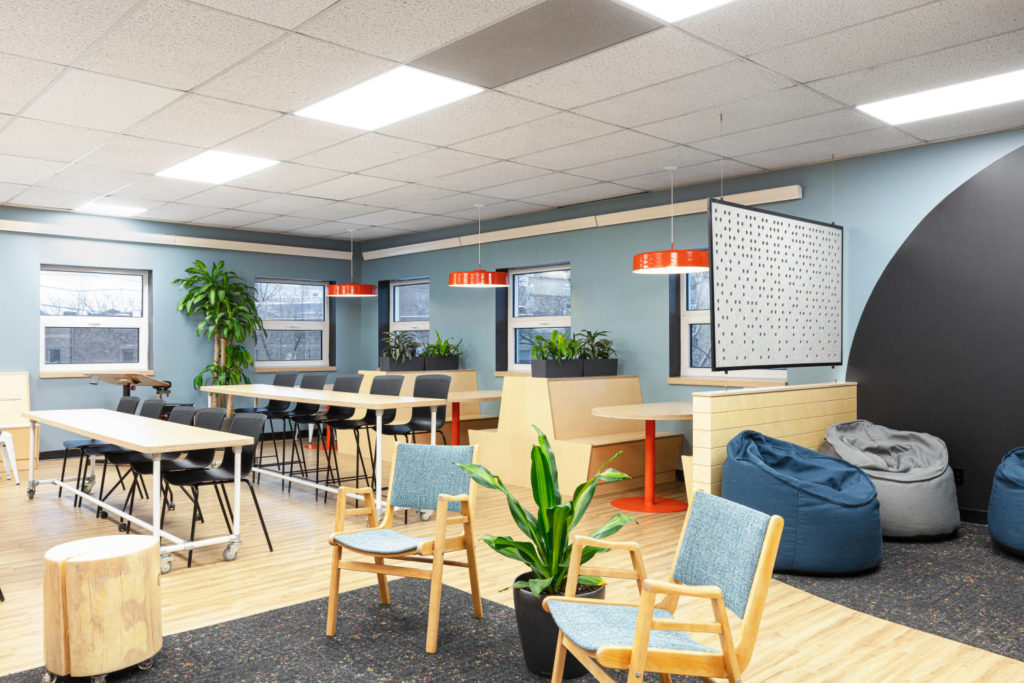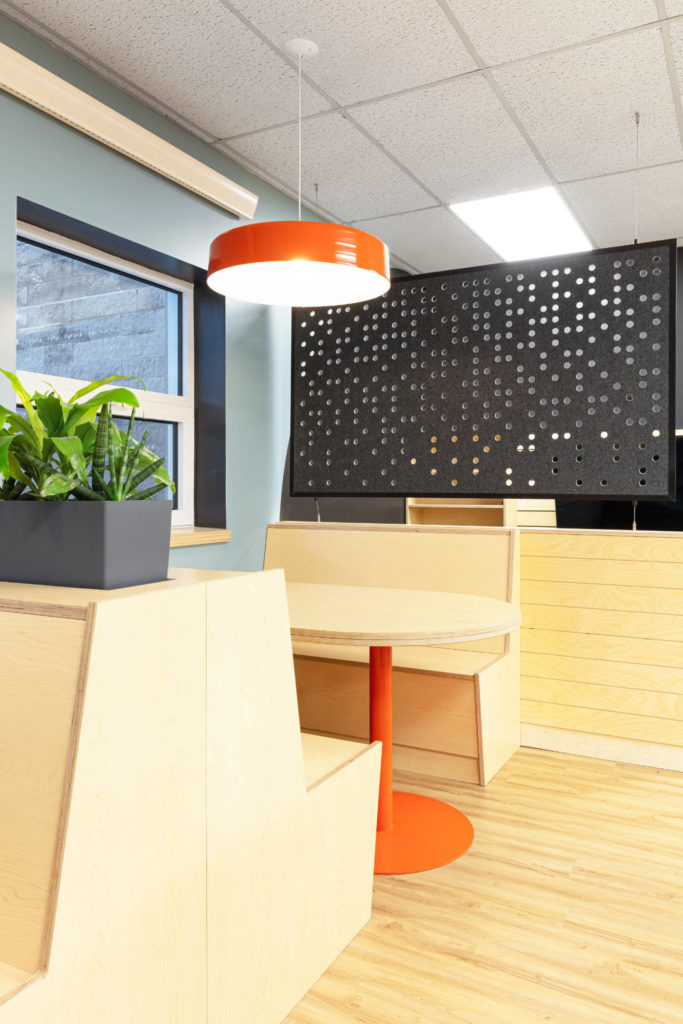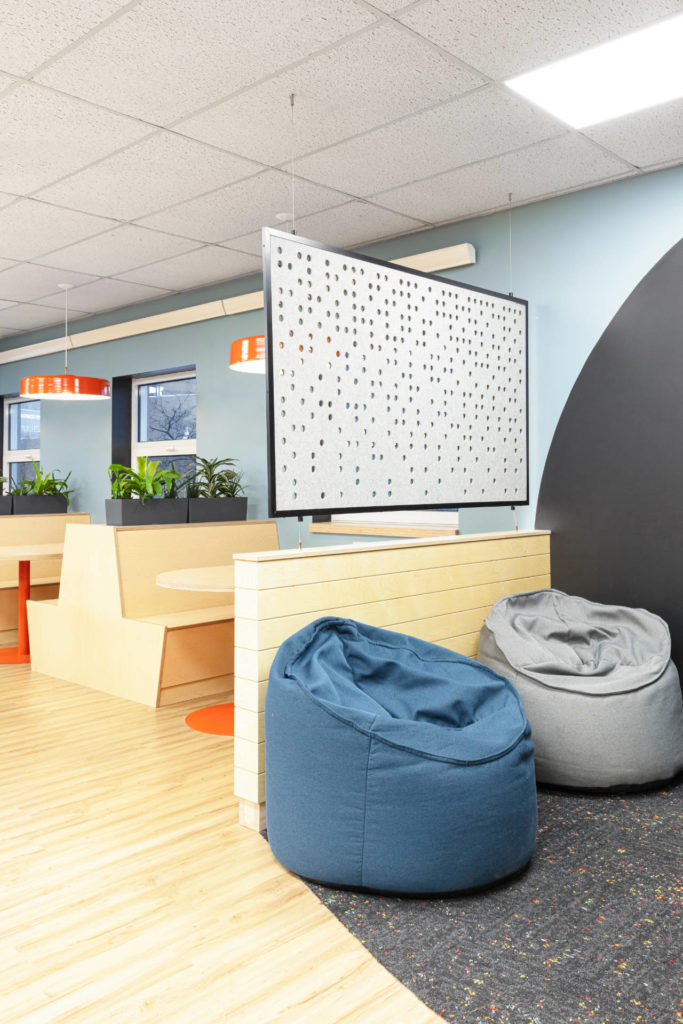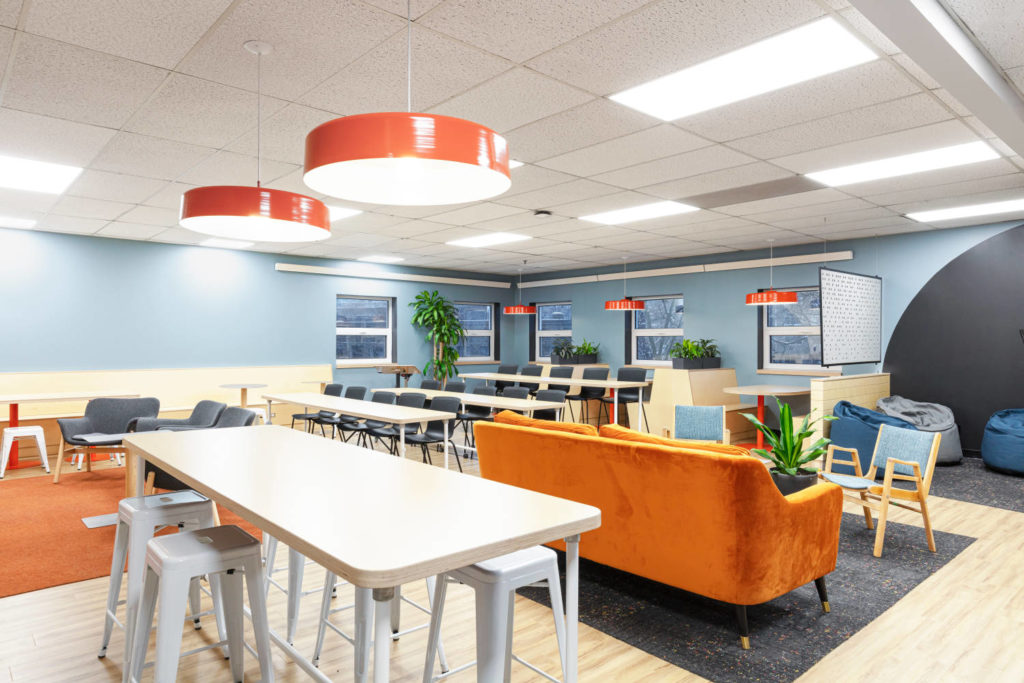
The opposite of a traditional school environment, a flexible classroom offers an experience that is adapted to different rhythms of learning, according to each student’s needs. These layouts provide multiple configurations for learning, studying, and collaborating. Whether students are alone at their workstations, or in a group around a large table, in the middle of the classroom, or in a work room, seated on stools, or on regular chairs, relaxing on a couch, or gathered in small groups on island benches, they have a plethora of choices. Intuitive, these reimagined settings invite the student to take their place in the learning environment according to what serves them best. By allowing for independent development, the design plays an active role in their educational growth.

The challenge that exists in this evolving approach to pedagogy is being able to offer a flexible environment that doesn’t compromise its intuitive structure. The project was conceived in the spirit of co-working wherein the learning environment is adaptable and inspiring. Several strategies were put in place: the furniture around the rooms is fixed, while the units in the center are movable; the design favours a convergence towards the whiteboard, where the teacher can quickly illustrate his or her point; the mats create subspaces, which naturally delineate the zones and improve the acoustics in the room. Additionally, placing tables at differing heights creates a dynamic effect for the various environments.


For the girl’s college, toned-down colours contribute to an aesthetic in the space that suggests a feeling of circularity, nature, and softness. Delicate hand-painted floral murals complete the flower-themed signage of the small, closed rooms. The two classrooms adopt a common language in terms of their respective layouts, yet each has its own ambiance.
The design optimizes square footage, while offering spaces that promote wellness and a collaborative environment thanks to their convivial and playful installations. The felt, soundproof panels on the sturdy furniture are custom made, and certain chairs, remnants of the old classroom, were also restored.

These unique spaces possess the particularity of becoming the living room of the dormitory for foreign students in the evenings. In order to make them feel at home, a residential aesthetic was applied. The use of the spaces as classrooms during the day, and recreational areas in the evening, as well as the addition of comfortable sofas, carpets, and plants, helps the residents, who have come to learn, study, eat, and have fun, to appropriate the environment.














Credits:
Client: Pensionnat Saint-Nom-de-Marie
Designer/Project manager: Andrée-Ann Daniels
Collaborator: Nicola Tardif-Bourdages
Graphic interventions: Francois Léandre
comments